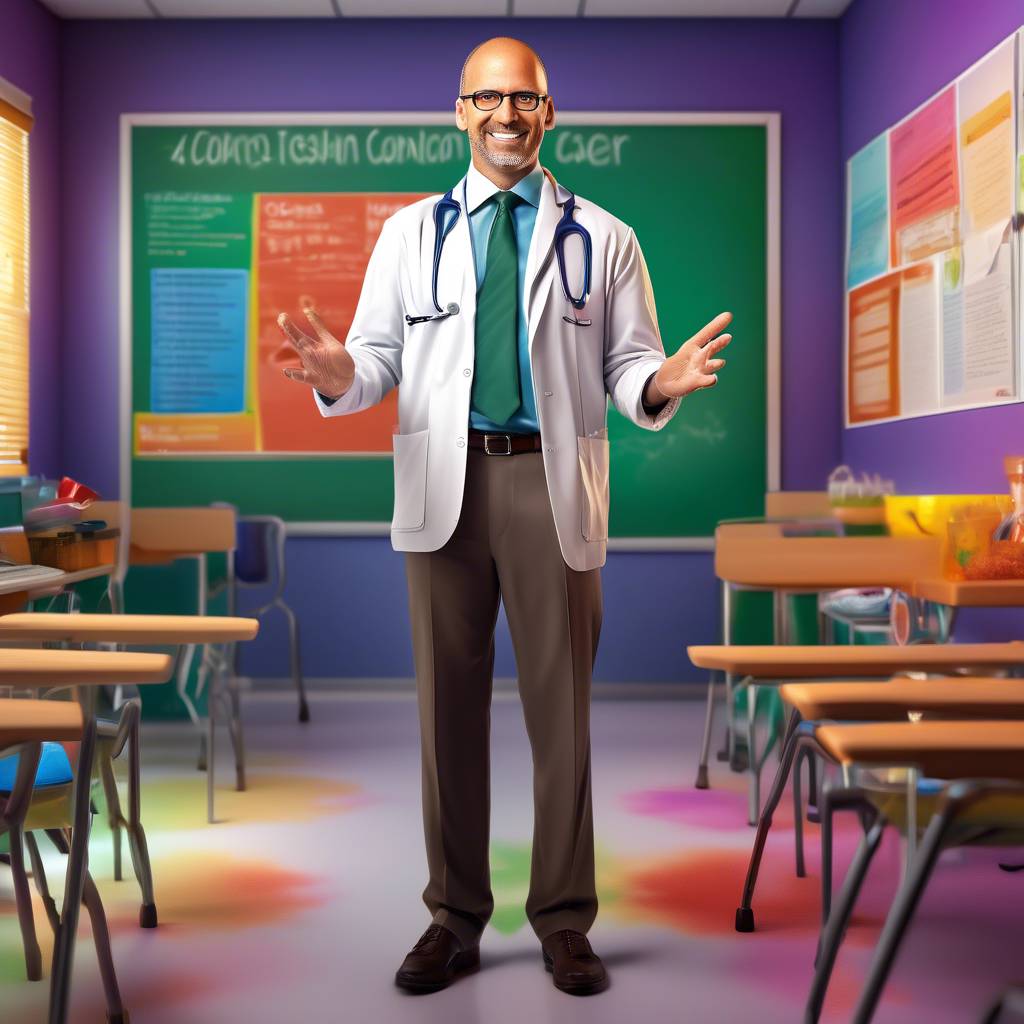Teaching kindergarten can be exhausting, and when Mariely Del Valle started feeling tired and taking naps every day after work, she knew something was wrong. She also noticed she was becoming sensitive to certain foods and experiencing changes in her bowel movements and blood in her stool. Despite cutting out certain foods, her symptoms persisted. After consulting her doctor, Del Valle was recommended to undergo a colonoscopy, and at the age of 40, she was diagnosed with colorectal cancer with a golf-ball-sized tumor in her colon that had metastasized to her liver.
Del Valle underwent five rounds of chemotherapy to shrink the tumor and subsequently had surgery to remove it, along with parts of her liver and colon. It came as a shock to her to be diagnosed with cancer at such a young age, and she expressed her desire to live and see her son grow up. Dr. Andrea Cercek, a gastrointestinal oncologist, explained that there has been a rise in colon cancer cases in people under 50, especially those in their 20s and 30s, with potential factors including sedentary lifestyles, rising obesity rates, environmental factors, and changes in diet.
Symptoms of colon cancer include bloody stool, changes in bowel habits, unexplained abdominal pain, weight loss, and fatigue. Data from the American Cancer Society revealed that colorectal cancer is a leading cause of cancer deaths in younger age groups. The recommended age for a colonoscopy has been adjusted to 45, but there is a call for an increase in screening for individuals aged 45 to 49, particularly those with a family history of colon cancer or genetic predisposition.
Del Valle is currently undergoing preventative chemotherapy to prevent the cancer from returning and is grateful for the treatments she has received. She recognizes the importance of early detection and encourages others to prioritize their health and be proactive in seeking medical attention if they experience symptoms. Del Valle emphasized the need for awareness and advocacy for colon cancer in younger age groups, stressing the importance of getting screened and taking preventive measures.
The experience has been a challenging journey for Del Valle, but she feels optimistic about the future and grateful for the opportunity to raise awareness about colon cancer. She hopes to use her story to encourage others to prioritize their health and seek medical attention if they experience symptoms. By sharing her experience and advocating for early detection and screening, Del Valle is determined to make a difference and help others recognize the importance of taking care of their health, regardless of their age.




![Negativity Overwhelms 'Ghost Of Tsushima' on Steam with Negative Reviews [Updated]](https://linkedindaily.com/wp-content/uploads/2024/05/negativity-overwhelms-ghost-of-tsushima-on-steam-with-negative-reviews-updated-330x220.jpg)




